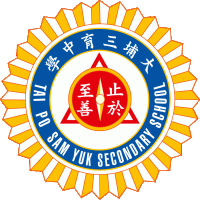| Language Policy |
We use English as the main medium of instruction and create a progressive English learning environment with a curriculum designed to match the proficiency level of each class. The school implements the "Quality Reading Program" to widen and enhance students' interest in reading and their ability to appreciate written works |
| Learning and Teaching Strategies |
Our school attaches great importance to English learning. Many native English-speaking teachers are hired to help create an authentic language environment for students. S.1 and S.2 students must join Chinese/English/Mathematics enrichment classes, free of charge. Every year, we conduct several overseas study tours and make tour scholarships available to students. To foster positive thinking, Invitational Education has been continuously implemented. As our school aims to foster interactive learning, we apply Brain-Based Learning and e-Learning methods in our classrooms in order to cater to different learning styles among students. Students are able to become proactive learners through group activities, discussions, the use of continuous assessment and other collaborative learning methods. In response to students' needs, the whole-person curriculum is designed specifically to work in line with normal lessons and extra-curricular activities (over thirty). This is regarded as an extension of classroom teaching so that a diversity of learning experiences can be gained. |
| School-based curriculum |
1. Electives: 3X. Students may choose a combination of subjects according to their interest and aptitude.<br> 2. Curriculum highlights: Chinese History is a compulsory subject for junior forms. There are 13 electives available for senior forms. In response to social changes and students' needs, the school strives to develop high-quality school-based curricula. Subject teachers hold a level meeting once a week to share teaching inspiration and difficulties, to systematically explore different topics, and to design topic-related teaching materials. |
| Approach to Catering for Learner Diversity |
1. Targeted pedagogical skills; enhancement and enrichment schemes.<br>2. Co-Curricular Activities to enhance students' interest in relevant subjects.<br>3. Various scholarships set up for students with high performance, such as study tour scholarships, best improvement awards, etc. Please check the school website for details.<br>4. After-school remedial classes are offered to cater for learning diversity. |
| Approach to Integrated Education |
The school’s Student Support Team is made up of our school’s Vice Principal, Special Educational Needs Coordinator (SENCO), Head of Counseling Team, and the Social Worker. They are to propose, organize and implement the idea of integrated education in school. Related policies include a series of assessments, support services, designated social skills training, small group learning and special examination arrangements led by educational psychologists, clinical psychologists, occupational therapists and speech therapists. To take care of students’ learning needs, meetings between teachers and parents are also held on a regular basis. |
| Education Support for Non-Chinese Speaking (NCS) Students |
|
| Home-School Co-operation |
The Parent Teacher Association (PTA) was formed years ago. Parents and teachers work together closely and enthusiastically to organize different activities in and out of school. Respect and co-operation are the important elements in this association. We treasure the collaborative and mutual enrichment which allows a better parental understanding of the school while helping their children enhance their sense of belonging to our school. |
| School Ethos |
Our school takes a simple and transparent approach to all things, with warm relationship between teachers and students, learning together to "honor God and love others" and growing in the grace of the Lord. |
| School Development Plan |
1. Uplift moral education and uphold our Bible-based school principles.<br>2. Further boost the average score of HKDSE results.<br>3. Ensure every student has a chance to receive higher education. |
| Teacher Professional Training and Development |
The school has set up a fund to subsidize teachers who have served for five years or more and decide to work on a master's degree or above. A teacher or administrator will respectively receive $60,000 or $70,000 each in tuition subsidy. In addition, each teacher will receive $1,500 per year to take short-term courses to improve the quality of teaching. To enhance e-learning and teaching, teachers can choose to purchase a tablet computer with this subsidy. The school has three Teacher Development days in a year when there are various forms of teaching exchanges, group sharing and peer encouragement. In addition, teachers frequently attend seminars and workshops to keep up with the latest information and developments in education. |
| Life-wide Learning |
To facilitate every student’s physical and mental development, the school has implemented the ‘Shining Star Programme’ to work along with OLE and the ‘NEWSTART’ programme. Students’ achievements and awards are saved as a comprehensive ‘Students’ Learning Portfolio’ using different means, such as Rainbow Award Scheme, OLE Portfolio and iPortfolio in eClass. Apart from improving students’ academic performance, the school also takes care of their needs in every aspect by organizing a variety of activities that help realize their potential. Our school has a Chinese Orchestra, a Marching Band, a School Choir, a Swimming Team and different sports teams. S.1 students must join an Aesthetic Education Porgramme (musical instrument or fitness). We also have various academic clubs, such as the Chinese Art and Culture Club as well as various sports clubs. By participating in these types of activities, students can develop their leadership skills, interpersonal communication skills and problem solving skills. |
